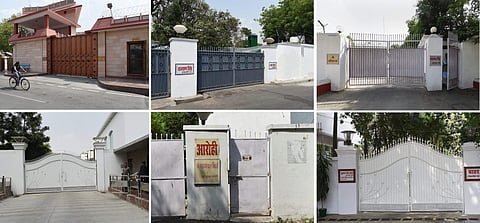

NEW DELHI: The Supreme Court on Monday quashed an Uttar Pradesh law that entitles former chief ministers to retain their official bungalows after demitting office, holding that out of power a CM was a common citizen. The order will affect several former UP CMs, including Mulayam Singh Yadav, Mayawati, Akhilesh Yadav, Kalyan Singh, Rajnath Singh and N D Tiwari.
A bench headed by Justice Ranjan Gogoi ruled that there could not be any distinction between a common man and a former CM and granting such privilege violated the Right to Equality under Article 14.
“The Chief Minister, once he/she demits the office, is at par with the common citizen, though by virtue of the office held, he/she may be entitled to security and other protocols. But allotment of government bungalow, to be occupied during his/her lifetime, would not be guided by the constitutional principle of equality,” the bench said.
Although the verdict is confined to UP, it is likely to have implications on residential accommodations given to former Presidents, PMs and CMs of other states. The court said natural resources, public land and public goods, which would include government bungalows and official residences, were public property that belonged to the people.
It said the pertinent provision of the UP Ministers (Salaries, Allowances and Miscellaneous Provisions) Act, 1981, created a separate class of citizens for conferment of benefits on the basis of the previous public office held by them. “Once such persons demit the public office earlier held by them, there is nothing to distinguish them from the common man. The public office held by them becomes a matter of history and, therefore, cannot form the basis of a reasonable classification to categorise previous holders of public office as a special category of persons entitled to the benefit of special privileges,” the court said.
It added that Section 4(3) of the 1981 Act, which recognises former holders of public office as a special class of citizens, would appear to be arbitrary and discriminatory, thereby violating the equality clause.
A 2016 top court judgment had quashed rules for such allotments but the UP government had come up with this law ostensibly to overreach that order, the bench observed. Monday’s ruling came on a plea by an NGO, seeking action against UP authorities for acting in contempt of the 2016 order.